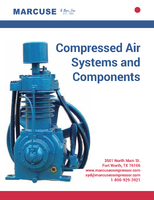Engine Starter is designed for start/stop systems.
Share:
Press Release Summary:
Tandem Solenoid (TS) starter uses mechanism to separately control the forward shift of pinion gear and motor rotation; this allows engine to restart while it is still rotating, which shortens waiting time when restarting and allows for smoother engine feel at start-up. Starter is suitable for stop/start systems, which address fuel efficiency and CO2 emissions by automatically stopping engine while vehicle is waiting at stop lights or is stopped for other reasons.
Original Press Release:
DENSO Develops New Starter for Stop/Start Systems
- Shortens Waiting Time when Restarting the Engine -
KARIYA (Japan) -- When it comes to stop/start engines, engine restart times are critical to the driver's piece-of-mind. DENSO Corporation has developed a new starter, Tandem Solenoid (TS) starter, which shaves up to 1.5 seconds off the restart time when restarting the engine, compared to the company's previous models. DENSO's new starter, designed specifically for stop/start systems, uses the world's first mechanism to separately control the forward shift of the pinion gear and the motor rotation, which allows for a quicker restart.
"With the new starter, the pinion gear shift and motor rotation can be separately controlled depending on the engine speed, and the engine can restart while it is still rotating. This shortens the waiting time when restarting and allows for a smoother engine feel at start-up," said Masahiko Miyaki, senior executive director of DENSO's Electric Systems Business Group.
To start the engine, starters shift the pinion gear forward to mesh with the engine ring gear to transmit the rotational force of the starter motor through the pinion gear. The conventional stop/start system starter, which has a mechanism that conjunctionally shifts the pinion gear and energizes the motor for rotation, is not capable of restarting when the engine is rotating - or while the engine is coasting after the vehicle is stopped. Because of this lag time, it is possible the driver may wait up to 1.5 seconds when restarting the engine after the engine is stopped.
With the TS starter, if the engine is rotating fast, the motor is first energized to increase the pinion gear speed and then the pinion gear is shifted forward when the rotation of the ring gear and pinion gear are close. When the engine is turning slowly enough for the two gears to be connected, the pinion gear is first moved forward, and then the motor is powered.
To help improve fuel efficiency and reduce CO2 emissions, stop/start systems automatically stop the engine while the vehicle is waiting at stop lights or is stopped for other reasons.
Demand for stop/start systems is expected to grow as fuel economy requirements and CO2 emissions regulations become more stringent. DENSO has produced starters since its foundation and began mass-producing stop/start starters in 1999. DENSO will continue to develop products that, not only feature high reliability, but also increase fuel efficiency while reducing CO2 emissions.
DENSO Corporation, headquartered in Kariya, Aichi prefecture, Japan, is a leading global automotive supplier of advanced technology, systems and components in the areas of thermal, powertrain control, electric, electronics and information and safety. Its customers include all the world's major carmakers. Worldwide, the company has more than 200 subsidiaries and affiliates in 35 countries and regions (including Japan) and employs approximately 120,000 people. Consolidated global sales for the fiscal year ending March 31, 2011, totaled US$37.7 billion. Last fiscal year, DENSO spent 9.3 percent of its global consolidated sales on research and development. DENSO common stock is traded on the Tokyo and Nagoya stock exchanges.For more information, go to www.globaldenso.com, or visit our media website at www.densomediacenter.com.




